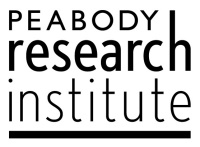Description of Project 
Why do certain students exhibit antisocial behavior? What drives some students to substance abuse? And what is behind student failure in school? Antisocial behavior, school failure, and substance abuse are complicated and overlapping problems with long-term consequences. To effectively target programs and interventions, we need to identify and understand the developmental warning signs of these behaviors. Knowledge of these warning signs is necessary to identify children in need of services, and to design prevention programs aimed at addressing these negative behaviors.
Using advanced meta-analysis techniques, the “Predictors” project will produce a synthesis of findings from all available longitudinal studies that report relationships between antecedent variables and antisocial behavior, school outcomes, and substance use.
The Research Questions
-
What are the most important risk and protective factors for antisocial behavior, school success or failure, and substance use during different age periods over the course of childhood and adolescence?
-
Are there differences in the predictive relationships associated with gender, ethnicity, and socioeconomic status of the students?
-
What combinations of risk and protective factors tend to co-occur during different age periods, and what is their collective predictive strength when combined into multivariate factors?
This project is supported by funding from:
- Institute for Education Sciences (R305A110074; PI: Wilson)
- National Institute of Mental Health (MH051685 and MH063288; PI: Lipsey)
- National Institute on Child Health and Human Development (HD047301; PI: Wilson)
- National Institute on Drug Abuse (DA009981 and DA14290; PI: Lipsey)
- William T. Grant Foundation (PI: Lipsey)
©2024 Vanderbilt University ·
Site Development: University Web Communications